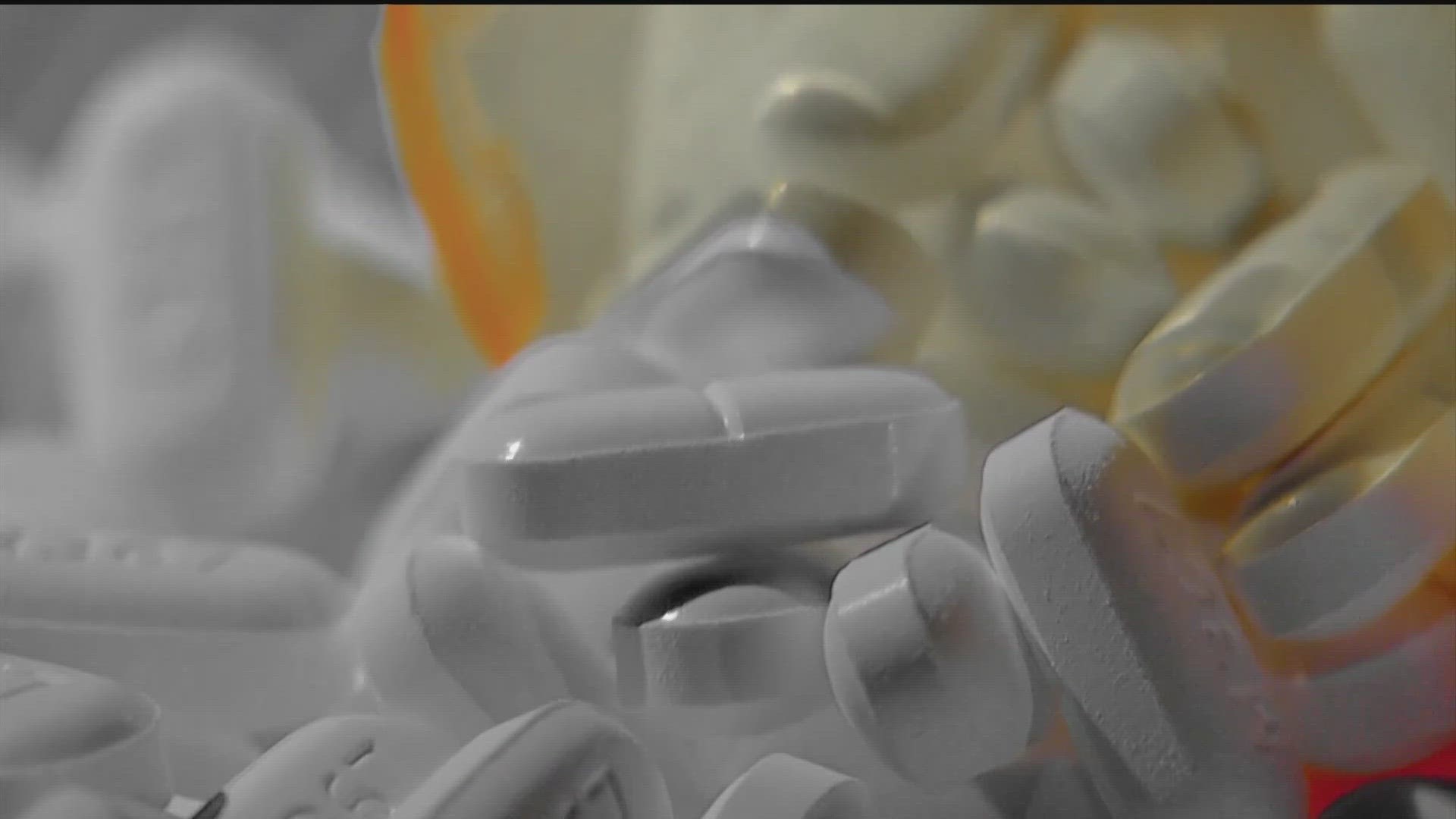ATLANTA — The City of Atlanta and a coalition of county governments in the metro area have lodged a wide-ranging lawsuit against more than 30 drug companies and pharmacies they accuse of fueling the opioid crisis out of "corporate greed."
The suit was filed in federal court this week. It names drug manufacturers such as Novartis as well as a range of well-known pharmacies and prescription distributors such as Publix, Kroger and Target.
The suit, which clocks in at 166 pages, states: "This case is about one thing: corporate greed."
"Defendants put their desire for profits above the health and well-being of consumers in Plaintiffs' geographic area at the cost of Plaintiffs," the lawsuit asserts.
Jeff Breedlove survived an addiction himself and now helps others going through the same struggle by working for non-profit Georgia Council for Recovery. He encourages anyone seeking help, to call their number: 844-326-5400.
Based on his first-hand experience, he believes the lawsuit is valid.
“It's demonstrably true that pharmacies across America distributed way too many, and a dangerous amount of opioids," Breedlove said.
The local governments essentially argue the drug companies and distributors caused a resource drain by fueling the opioid epidemic, forcing them to "expend exorbitant amounts of money" to "provide and pay for health care, services, pharmaceutical care and other necessary services, including payments through services such as Medicaid for prescription opium painkillers ('opioids')."
The metro area county governments joining the City of Atlanta in the suit include Clayton, DeKalb, Forsyth, Fulton, Henry and Rockdale. The full list of companies targeted by the lawsuit can be found at the bottom of this article.
The lawsuit alleges the companies named as defendants engaged in general negligence, negligent marketing and "public nuisance."
“The opioid scandal is a tragedy. It’s a disgrace," Breedlove added. "It's so crucial because we know for a fact the number one cause of death in the United States of America for Americans 18 to 45 involve fentanyl overdoses, but that's opioids involved in this. This is literally killing Americans at a historic rate on par with Vietnam and World War Two."
With the suit, the local governments are seeking "abatement of the nuisance" and a range of compensatory, punitive and other damages, as well as attorneys' fees and other costs.
Among the claims are that the companies' marketing of opioids, rather than an actual medical breakthrough, "rationalized prescribing opioids for chronic pain and opened the floodgates of opioid use and abuse."
"The result has been catastrophic," it adds.
It further alleges that, "in order to expand the market for opioids and realize blockbuster profits" the companies acted to "create a sea of change in the medical and public perception that would permit the use of opioids not just for acute and palliative care, but also for long periods of time to treat more common aches and pains, like lower back pain, arthritis, and headaches."
The efforts, the suit asserts, "were wildly successful in expanding opioid abuse."
"As a direct and foreseeable consequence of Defendants’ wrongful conduct, Plaintiffs have each been required to spend millions of dollars each year in their efforts to combat the public nuisance created by Defendants’ deceptive marketing campaign," the lawsuit states.
"Plaintiffs have incurred and continue to incur costs related to opioid addiction and abuse, including, but not limited to, health care costs, criminal justice and victimization costs, social costs, and lost productivity costs."
The Georgia Department of Public Health says in 2021, there were 2,390 drug overdose deaths in Georgia, and more than 70% of them were opioid-related.
The numbers echo the increase of recovering addicts the Georgia Council for Recovery says it has seen. Breedlove says the numbers have skyrocketed ever since the COVID-19 pandemic.
“Overdose deaths, calls seeking help, people checking in for treatment," he listed. "We’ve just seen historic explosion in not only deaths, but people who have survived the disease since COVID."
In recent years, many lawsuits such as this brought by states and other entities have resulted in settlements worth billions of dollars. One of the largest such settlements was announced last year when Purdue Pharma, the maker of OxyContin, agreed to pay $6 billion to a coalition of states that had sued the company.
11Alive reached out to the main defendant, Mylan Pharmaceuticals but have not heard back.
List of defendants in the lawsuit
(abbreviation n/k/a stands for "now known as" and f/k/a for "formerly known as" indicating the company was purchased, changed names, or otherwise exists under new branding)
- Mylan Pharmaceuticals, Inc.
- Sandoz, Inc.
- Novartis AG
- West-Ward Pharmaceuticals Corp n/k/a Hikma Pharmaceuticals, Inc.
- Amneal Pharmaceuticals, LLC
- KVK-Tech, Inc.
- Indivior Inc. f/k/a Reckitt Benckiser Pharmaceuticals, Inc.
- Assertio Therapeutics f/k/a Depomed, Inc.
- Assertio Distribution, LLC
- Abbott Laboratories, Inc.
- Sun Pharmaceutical Industries, Inc.
- Collegium Pharmaceutical, Inc.
- Zydus Pharmaceuticals (USA) Inc.
- KeySource Medical, Inc.
- Quest Pharmaceuticals, Inc.
- Smith Drug Company
- Henry Schein, Inc.
- Henry Schein Medical Systems, Inc.
- Associated Pharmacies, Inc.
- Publix Supermarkets, Inc.
- The Kroger Co.
- Costco Wholesale Corporation
- Target Corporation
- Express Scripts Holding Company
- Express Scripts, Inc.
- UnitedHealth Group Incorporated
- Medco Health Solutions, Inc.
- Merck-Medco
- Optum, Inc.
- OptumRx Inc.
- Navitus Holdings, LLC
- Navitus Health Sollutions, LLC

